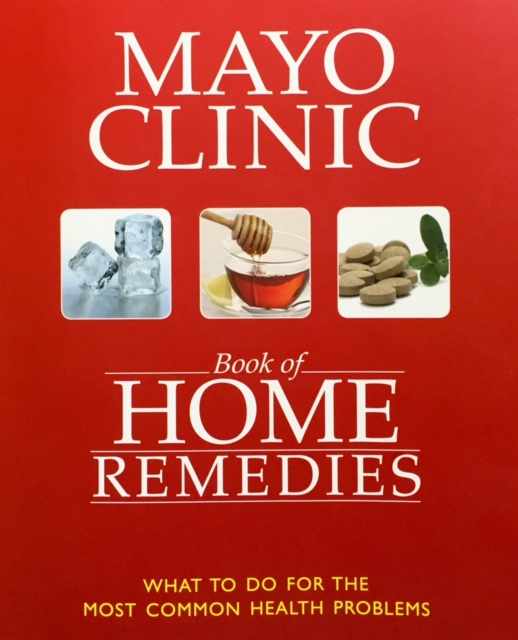-
Featured News
Home Remedies: Anxiety about acne

Acne is a skin condition that occurs when your hair follicles become plugged with oil and dead skin cells. Acne usually appears on your face, neck, chest, back and shoulders. Effective treatments are available, but acne can be persistent. The pimples and bumps heal slowly, and when one begins to go away, others seem to crop up. Depending on its severity, acne can cause emotional distress and scar the skin. The earlier you start treatment, the lower your risk of lasting physical and emotional damage.
You can try to avoid or control mild acne with nonprescription products, good basic skin care and other self-care techniques:
- Wash problem areas with a gentle cleanser. Twice a day, use your hands to wash your face with a mild soap and warm water. If you tend to develop acne around your hairline, shampoo your hair every day.Avoid certain products, such as facial scrubs, astringents and masks, because they tend to irritate skin, which can worsen acne. Excessive washing and scrubbing also can irritate skin. And be gentle while shaving affected skin.
- Try over-the-counter acne products to dry excess oil and promote peeling. Look for products containing benzoyl peroxide as the active ingredient. You might also try products containing sulfur, resorcinol or salicylic acid. Nonprescription acne medications may cause initial side effects — such as redness, dryness and scaling — that often improve after the first month of using them.The Food and Drug Administration warns that some popular nonprescription acne lotions, cleansers and other skin products can cause a rare but serious reaction.
- Avoid irritants. You may want to avoid oily or greasy cosmetics, sunscreens, hairstyling products or acne concealers. Use products labeled water-based or noncomedogenic, which means they are less likely to cause acne.
- Use an oil-free moisturizer with sunscreen. For some people, the sun worsens acne. And some acne medications make you more susceptible to the sun's rays. Check with your doctor to see if your medication is one of these. If it is, stay out of the sun as much as possible. Regularly use a nonoily (noncomedogenic) moisturizer that includes a sunscreen.
- Watch what touches your skin. Keep your hair clean and off your face. Also avoid resting your hands or objects, such as telephone receivers, on your face. Tight clothing or hats also can pose a problem, especially if you're sweating. Sweat and oils can contribute to acne.
- Don't pick or squeeze blemishes. Doing so can cause infection or scarring.
Journalists: Broadcast quality video of the reports below is in the downloads.
Watch: Take action against acne.
Watch: Dealing with adult acne.
Alternative Medicine
Some studies suggest that using the following supplements may help treat acne. More research is needed to establish the potential effectiveness and long-term safety of these and other natural acne treatments, traditional Chinese medicine, and ayurvedic herbs.
Talk with your doctor about the pros and cons of specific treatments before you try them.
- Tea tree oil. Gels containing 5 percent tea tree oil may be as effective as are lotions containing 5 percent benzoyl peroxide, although tea tree oil might work more slowly. Possible side effects include contact dermatitis and, if you have rosacea, a worsening of those symptoms. One study reported that a young boy experienced breast development after using a combination lavender and tea tree oil hair product. Tea tree oil should be used only topically.
- Alpha hydroxy acid. This natural acid is found in citrus fruit and other foods. When applied to your skin, it helps remove dead skin cells and unclog pores. It may also improve the appearance of acne scars. Side effects include increased sensitivity to the sun, redness, mild stinging and skin irritation.
- Azelaic acid. This natural acid is found in whole-grain cereals and animal products. It has antibacterial properties. A 20 percent azelaic acid cream seems to be as effective as many other conventional acne treatments when used twice a day for at least four weeks. It is even more effective when used in combination with erythromycin. Prescription azelaic acid (Azelex, Finacea) is an option during pregnancy and while breastfeeding.
- Bovine cartilage. Creams containing 5 percent bovine cartilage, applied to the affected skin twice a day, may be effective in reducing acne.
- Zinc. Zinc in lotions and creams may reduce acne breakouts.
- Green tea extract. A lotion of 2 percent green tea extract helped reduce acne in two studies of adolescents and young adults with mild to moderate acne.
- Aloe vera. A 50 percent aloe vera gel was combined with a conventional acne drug (tretinoin) and tested for 8 weeks on 60 people with moderate acne. The combination approach was significantly more effective than tretinoin alone.
- Brewer's yeast. A specific strain of brewer's yeast, called CBS 5926, seems to help decrease acne. Brewer's yeast is the only item in this list that's taken orally. It may cause flatulence.
The Mayo Clinic Book of Home Remedies provides answers you need to take care of common health problems on your own. This reference covers 120 of today’s common health problems in an easy-to-follow, A-to-Z format. Learn what you can do for yourself and when to seek medical attention.








